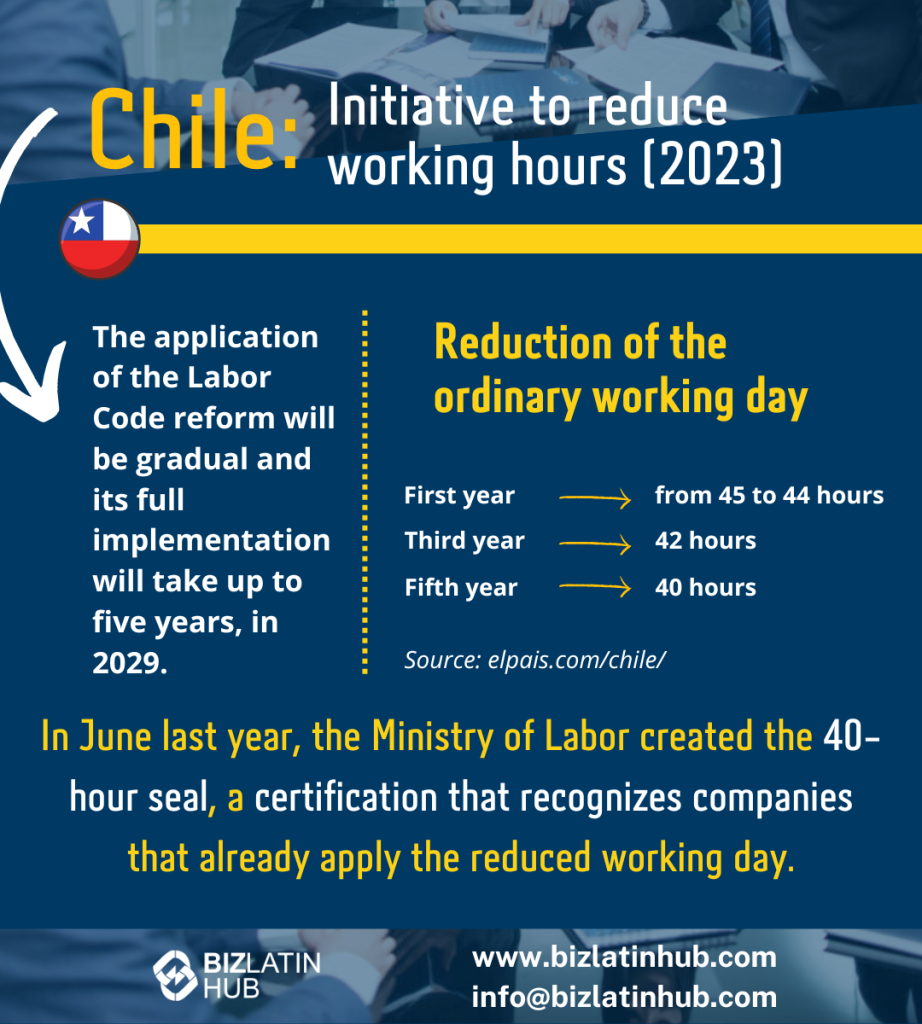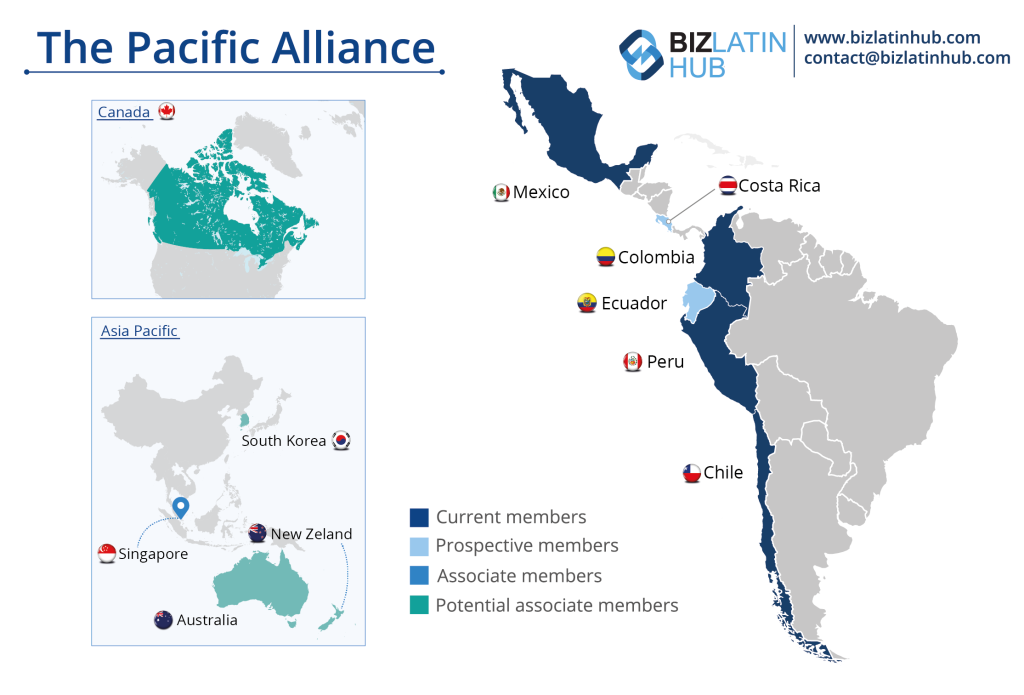Chile has been at the forefront of economic progress and innovation in Latin America for many years. Its fast-growing tech sector has led to the country being dubbed “Chilecon Valley” by some industry experts.
Today, there are over 8,000 IT companies in Chile with this number set to increase as the 5G telecommunications network widens.
The Government’s progressive policy continues with the new labor reform in Chile. In early April, Chile’s congress overwhelmingly passed a bill reducing the country’s work week from 45 to 40 hours.
This new law will have far-reaching effects on both workers and employees across the South American country.
Let’s dive into what the latest labor reform in Chile means for business and why having experienced legal representation in Chile is crucial.

What does the labor reform in Chile mean for business?
The National Congress passed the labor reform bill in Chile on April 11, 2023. The country will experience a progressive decrease in the work week, going from 45 to 40 hours.
Chile will now be in line with the majority of OECD member nations, which have a standard 40-hour work week.
Chile’s left-wing President Gabriel Boric said it was a “pro-family project that aims at the good living of all”.
The changes include a five-year transition period which will reduce the working hours by one hour of work per week per year, ending in 2028.
Businesses can adopt this change immediately or sooner than the five-year grace period. State-owned Copper giant Codelco announced they would implement the 40-hour work week by 2026.
There were other significant changes in labor reform in Chile besides this one. The bill also recognizes different flexible practices that companies and employees can agree upon.
For example, a 4 by 3 work model – consisting of four 10-hour days followed by three days off.
Parents of children under 12 also benefit by being able to organize different start and end times with their employees.
These reforms also ensure that workers’ wages stay the same and in cases where specific job work hours cannot be reduced, extra rest days are provided during the year.
“This project contemplates a long yearning because since 1937 (the ILO) has been promoting the gradual reduction of the working day to 40 hours and in many countries, this already exists. Now it is going to be a reality in Chile because there has been the will to make it happen.,” said Chile’s Minister of Labor Jeannette Jara Román.
How many hours is the work week in Chile?
Currently, Chile’s standard work week is 45 hours. These are some of the longest work hours in the world.
However, due to the new labor reform in Chile, this will be reduced to 40 hours over the next five years. The official work week will now be reduced by an hour a year until it reaches 40 hours in 2028.
To put these changes in perspective, Egypt has a 53-hour work week while Norway workers average 34 hours per week. In Latin America, Brazil has a 44-hour work week and Colombia has recently reduced its work week to 42 hours.

A summary of the significant changes to labor reform in Chile
- 45 to 40 hours work week
- Flexible employment agreements
- Parental benefits
- No changes to salary
Here is a summary of the leading changes to labor reform in Chile:
45 to 40 hours work week
The official working hours will be gradually reduced from 45 hours to 40 hours by 2028. It will happen over the next five years with the working week being reduced by one hour per week per year.
Flexible employment agreements
The new reforms allow employees to reach flexible working agreements with their employers. For instance, working 10-hour days, four days a week with three rest days.
Parental benefits
The law allows parents with children under 12 to have different entry and exit schedules based on their situation, which may involve starting work earlier or later.
No changes to salary
The bill also protects workers’ salaries. So the reduction in total working hours does not equal a salary reduction.
Partner with a legal expert to understand labor reform in Chile
By partnering with a dependable legal representative, you can ensure that your business follows all the relevant laws and rules in Chile, and prevent any issues with legal compliance.
Chile is undergoing many social and economic reforms, so your business must stay on top of all the legal updates.
An experienced local legal expert can also help you avoid any cultural, financial, and legal issues a new business may face in the Chilean market.
Biz Latin Hub offers comprehensive market entry and back-office services in Chile, Latin America, and the Caribbean.
Biz Latin Hub can guide you through the labor reform in Chile
Our extensive reach positions us as the perfect partner to facilitate Chile business investment, local recruitment, company formation, and corporate legal services.
Contact our multilingual team to learn more about how we can help you do business in Chile and the rest of Latin America.
Get the latest news and discover more about doing business in Chile HERE.





